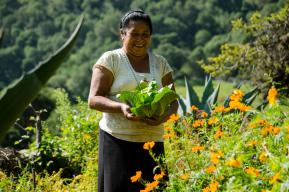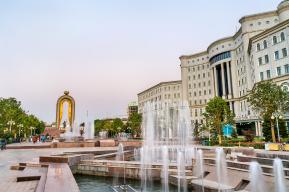© UNESCO/Havana/Leslie Salgado
From the Lesser Antilles to the Greater Antilles, from one end of the sea to the other, the other, the Caribbean is unbelievably attractive and diverse, characterized by a vibrant artistic production where dissimilar cultural expressions and languages converge.
Using this diversity as a starting point to promote regional integration and socio-economic development is one of the principles of the programme Transcultura: Integrating Cuba, the Caribbean and the European Union through Culture and Diversity. It is implemented by the UNESCO Regional Office for Culture in Latin America and the Caribbean, in partnership with several institutions in Cuba and the Caribbean, and it is financed by the European Union (EU).
To Juan Garay, head of EU Cooperation in Cuba, this vision is deeply rooted in history. As the Transcultura Inception Phase comes to an end, Garay shares his wishes and views on the Programme.
What place does Transcultura have in the concert that exists between the European Union and Cuba? Why is it relevant?
In the Caribbean, people feel very strongly about culture and art as communication channels. In this context, Cuba is clearly an epicentre of beauty, creativity, innovation, resilience, the transmission of thoughts and feelings. In this project, which is the only one of its kind in the world, the European Union saw a great opportunity for all these roots, those of Cuba and the Caribbean, to converge.
It is a project that seeks to facilitate the communication of artistic forces in a region and give them more channels for their dissemination, for their link with economic growth, for their connection with the challenges of sustainable development. For all these reasons, we are backing this magic project that is Transcultura, in this fascinating region that is the Caribbean, with Cuba as its epicentre.
Why support culture as a scenario for integration?
For the European Union, culture is key to social cohesion, it’s what brings people together. After the Second World War, it was culture that facilitated the founding of Europe, peace. We bring this to our cooperation in all countries. We attempt to promote dialogue between people and communities through culture.
Coincidentally, UNESCO was the first United Nations agency to be created after the wars, and its main purpose is to contribute to peace. (…) To me, culture, art and human values are closely related to the creation of a 21st century society with much more empathy, much more sensitive to nature. Transcultura has that same vocation, that spirit of bringing different forces and beautiful elements together.
In the second part of the poem “El Apellido” [The Surname], the Cuban poet Nicolas Guillén says, “Without knowing each other, we will recognize each other in our eyes heavy with dreams.” In your opinion, what do these words tell you about young people, culture and creativity in the Caribbean region?
Young people in the Caribbean are a light in this world. There are many lights, but they are a very strong light. Those of us who are not Caribbean, but love the Caribbean, by simply opening our eyes, our ears, and especially our hearts, we can feel a strong creativity. Perhaps it is the melting pot of cultures, the sea, the situation of islands, like ships, so many things. But there is magic here, magic that inspires a lot of innovation, a lot of creativity, a lot of courage to express the soul. I invite all the young people of the Caribbean and the world to let what those dreams are out of your soul. The dreams that, as Guillén says, unite us.
To make those dreams come true, you need training, opportunities. What importance do you give to training in the Programme?
The Programme has two key components. One is to build capacities and the other is to increase opportunities. We would like the project to approach capacities without –let us say- having to adapt to the orthodoxy of techniques and methods. Methods and techniques are important for all disciplines of art expression. But I think that it’s just as important to have a space for creativity, innovation, laboratories where even this orthodoxy can be challenged, and new artistic expressions may be found. In addition, this project can put different cultures in contact. Moreover, it can and should put different art expressions in contact. Whenever a writer or a poet get together with a musician, and then with a filmmaker, unbelievable magic springs to life.
What is Transcultura to you personally?
To me, Transcultura is a space in Cuba and the Caribbean where magic flows.
There is a man who played a key role in the birth of Transcultura. How do you remember Eusebio Leal? What does he mean to the Programme?
It is impossible to capture the greatness of Eusebio in a few words. Eusebio combined his worship of culture with history and social harmony; the ideas of the Revolution with a cult of the past and the future, in a leitmotif of nobility and beauty. Without him, we would not be here today. He spoke of this idea during conversations in Europe, where he was often invited to give a lecture or talk about his dreams. It was there that his ideas caught the attention of our colleagues in Brussels, that they, that the idea came to life, with the restoration of the Santa Clara Convent as a starting point. Later I gradually proposed the idea to include the ISA, the Film School.
He will always be remembered for his love, his perseverance. We wouldn’t have gotten this far without him. He was, to a great extent, the driving force behind this idea.
What is your impression of the team that is working on this Programme?
I’ve been to many countries and you rarely find such a team, with so much passion, enthusiasm and dedication. A wonderfully dedicated team! And I would like to thank Katherine and the whole team for their commitment.
Transcultura turns this drive for culture into a means of connecting people. I am positive that, with that passion, the Programme and its many offsprings, will enlighten our work.













